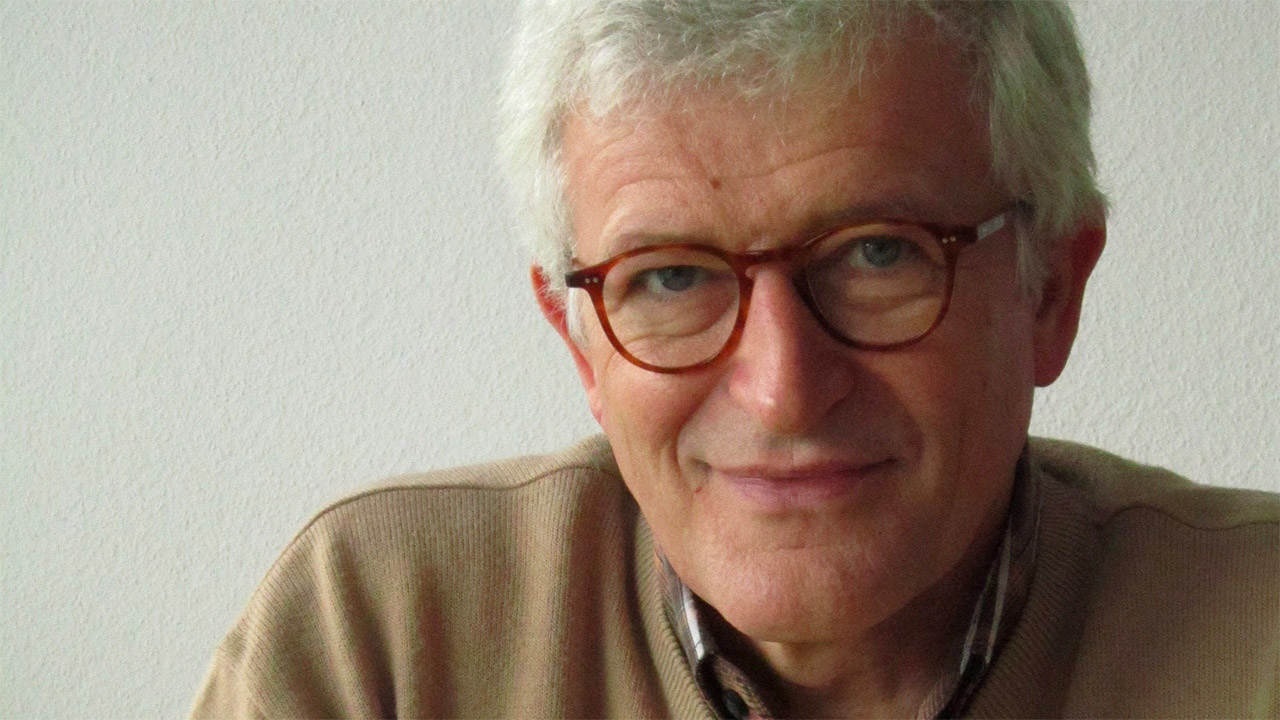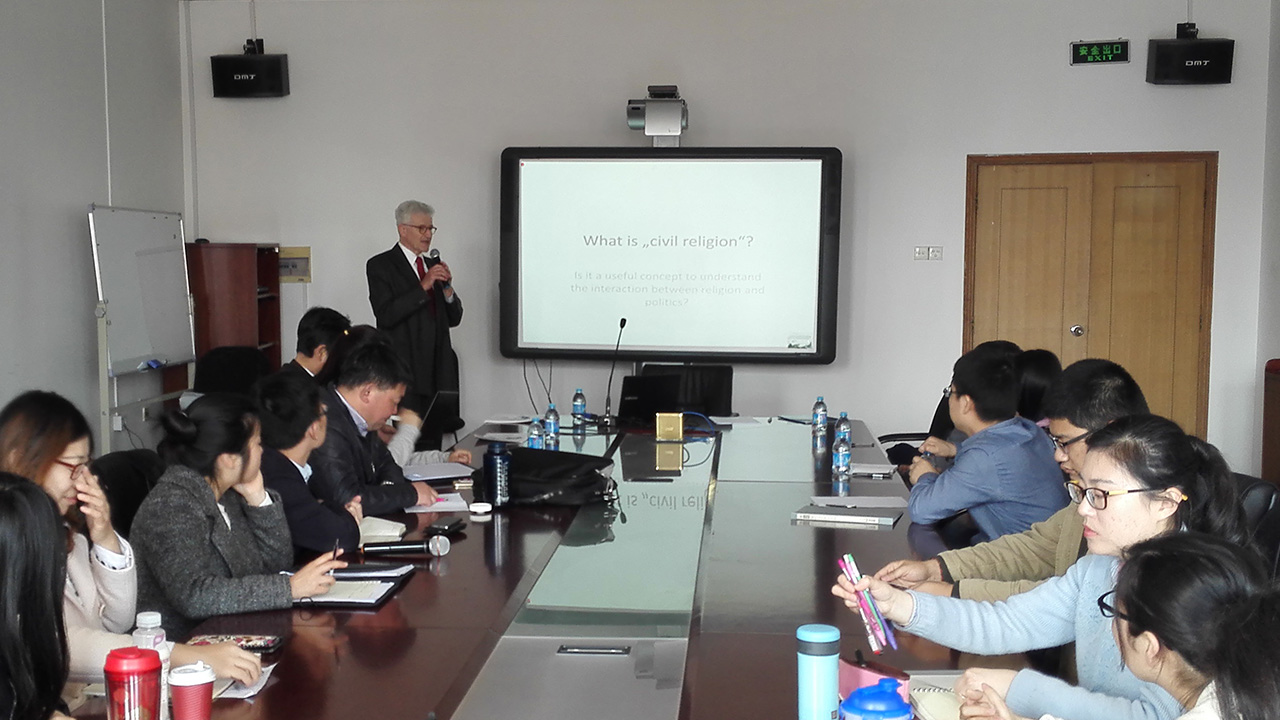| P |
rofessor Rolf Schieder, Chair of Practical Theology and Religious Education in the Faculty of Theology at the Humboldt University of Berlin, gave a lecture to students at the Hongkou Campus of Shanghai International Studies University (SISU) last Wednesday.
In his lecture, titled “Civil Religion: Is it a useful concept to understand the interaction between religion and politics”, Prof. Schieder focused on the role of religion in creating acceptance for and identification with a given social and political system. He also identified the shifts in meaning of the concept of religion through the centuries beginning from its origins during the time of the Roman Empire until today.
He illustrated his ideas comprehensively by defining the concept and category of “religion”, citing civil religion in the United States and Germany as examples, and explaining the difference between civil religion and nationalism. He also analyzed the problem of the adaptation of civil religion in the modern individualistic society.
According to Schieder, the term “religion” is of Roman origin and refers to the public cult of the Gods. In the Roman understanding of religion, he said, “religion is practiced public piety, it is a practice, not a set of beliefs. It serves the common good and is an integral part of decent, moral behavior.”
As a consequence of the separation of church and state following the French and American Revolutions, Rousseau coined the term “civil religion”, which is no longer connected to one specific religion. The dogmas of civil religion are: Belief in an almighty and benevolent God; Belief in the punishment of the wicked; Belief in the sacredness of the laws; Tolerance towards others.
Schieder also analyzed the question of “How to make the civil religion function?” by using Robert N. Bellah’s concept that both the state and the religion hold the belief that the individual should transcend his own “egoism and egotism”.
Under the condition of freedom of religion a civil religion can only exist on the grounds of the free consent and free will of the people. The state is in need of its citizen’s deep feelings of obligation, duty and sacrifice, but it cannot enforce a civil religion as Rousseau suggested. This would violate the guarantee of religious liberty.
Schieder concluded that there are four types of religion, as follows. Family religions refer to the identification and commitment to one’s family. Folk religions celebrate belonging to a regional or tribal entity or the identification with some heroic figures (sports as religion). Denominational religious include Islam, Buddhism, and Christianity. Civil religions include choosing and entering a corporate belief system or identification with and commitment to sacrifice for one’s nation.
The adaptation of civil religion to an individualized society is another key point to balance the enforcement of law by the state and the free compliance of the citizens as a consequence of civil religion. But the current society is highly individualized, and the message is always: “Be different! Be special!”
Schieder said the modern “cult of the individual” advocates the idea of “Everyone governs himself.”
“Then education is the key,” said Schieder. “Because people should learn something and learn freely.”
Minister-Counselor Dr. Jiang Feng, Chair of the University Council of SISU, agreed with Prof. Schieder’s idea of “Everyone should be the governor of himself”.
“We need to make a difference in the new time,” Jiang said. “Free spirit and free style is the civil religion of our university.”





